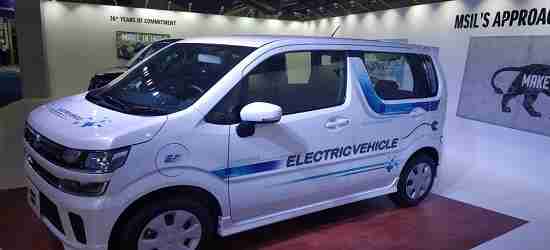Can Tesla Conquer Indian Market after tasting success in China?

By Prasad Nair
Posted on 20 Jan 2021
Business magnate Elon Musk confirmed Tesla’s India entry on his Twitter handle, tweeting “as promised”, sparking a sense of euphoria among electric vehicle enthusiasts, many of whom may be willing to buy one Tesla in their lifetime. Tesla which is setting up an R&D unit in Bangalore is expected to sell cars this year beginning with its highest selling Model 3. Company officials told media that by next year it would sell its premium Model S and Model X to further penetrate the Indian market.
Tesla which is a leading electric car manufacturer was able to impress the Chinese market but will it get encouraging orders and sales similarly in India? Industry analysts are divided, while many welcome the development saying that it will eventually fasten the development of electric vehicle infrastructure and scale up R&D efforts to produce low cost batteries. Others point out that the traditional Indian market is largely dominated by fuel powered cars and competing with them will be a herculean task for Elon Musk and his team.
Although the Government of India has been announcing various stimulus measures to boost the sale of electric vehicles in the country, car sales haven’t really picked up. The government launched the Faster Adoption and Manufacturing of Hybrid and EV (FAME) plan with Rs. 900 crore commitments to subsidies and in 2019 it introduced another FAME programme with Rs.10,000 crores to encourage the public to buy electric cars. As an added incentive the union government also reduced GST from 12% to 5% but all these measures have perhaps fallen flat.
An industry analyst, reflecting on the failures, said that while China succeeded by providing big subsidies for purchase of electric cars and state-owned companies in China invested heavily in building infrastructure, India has been a different story altogether. Furthermore, India is a price sensitive market, it is to be noted that in India the upper limit for an electric vehicle to qualify for subsidies is Rs.15 lakh and considering this, Tesla’s offering may not even qualify for subsidies. An entry level Tesla Model 3 built in China costs approximately $ 41,000 which is an exorbitant price for Indians. If Tesla’s most affordable car in India would appeal to a marginal number of buyers then forget the more expensive ones. The company’s volume of sales in India wouldn’t be very impressive.
On a brighter note, India’s electric vehicle market is a growing one and there is immense scope for its value to rise in the coming years provided the challenges relating to battery pricing and infrastructure are amicably met. It is early days to comment on Tesla’s strategic moves to conquer the Indian market. The company hasn’t revealed the prices for the Indian market and there lies the catch. The automotive major is already in talks with several state governments to set up an India base. Gujarat government has expressed its interest to welcome Tesla and extend all possible incentives for the company to set up its base in the state.
As per report published by India Energy Storage Alliance, electric vehicle market is likely to reach 63 lakh unit mark, by 2027, and demand for batteries is expected to increase during the period. Developments such as these could probably help India’s nascent electric vehicle market to rise in the long run.
The author is a Delhi based journalist and can be contacted at prasad.n@indoen.com
Related Stories
- India’s climate finance blueprint: A snail’s pace or a fast gallop?
- India’s renewable energy boom: Driving growth and green jobs
- Strategic Pathways For India’s Green Mobility
- India’s green hydrogen mission: Powering a sustainable future
- India to cap investment in EV charging for tariff relief as Tesla entry...
- Centre likely to modify new EV policy as Tesla gears up to enter India
- India's EV push needs high-speed trains ... China's adoption rate
- India's EV incentive plan finds no takers-government weighs fix
- Affordable clean energy key to India's accelerated energy transition
- Unlocking Investments To Achieve India’s 500 GW RE Target